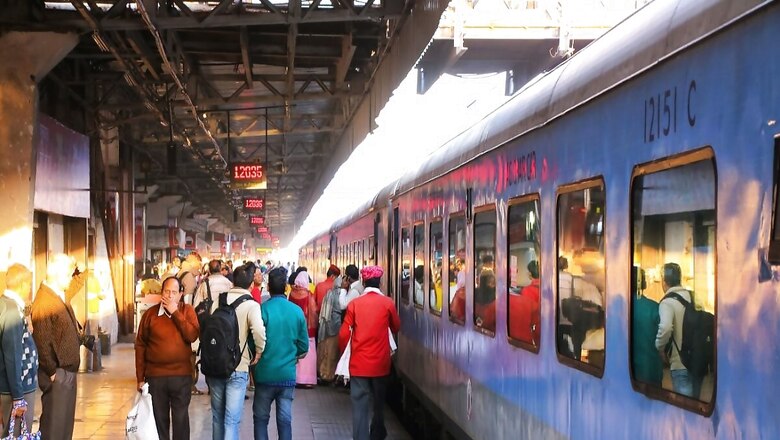
views
Standing on a train platform became my beacon of normalcy, a tangible return to the life I once knew before Covid-19 overwhelmed us. In the midst of chaos, I found an inner calm, the familiar humming of life, once jarring was a relief, an antidote for the months of isolation of a time devoid of noise, smells and chatter, that unique Indian symphony that trails you wherever you go. And reminds you that you are never alone. It was good to be back to my beloved trains, the lifeline of my cherished country.
I only travel by train, I sleep better on a train, and I am nicer to strangers on a train. Stripped of the wariness the world imposes on us, in essence, I am for those few hours, innocent again. And then that sense of familiarity is shattered by the devastating accident in Balasore.
The seasons of a train journey — and there are many at this time of the year — are children on summer holidays going to visit their maternal grandparents or to visit a part of India they have never seen. A voyage of discovery awaits or one of reigniting familial love. At this time of the year, a train journey is rarely embarked on without love. When I think of the Odisha train accident, I see not the mangled ruins of the carriages but I feel the love. The love, that unquantifiable emotion that must have permeated the air, the love for family, new experiences, opportunity and the vast expanse of this incredible nation. That love mingled with the clatter of wheels on tracks and spiked by the laughter of children and maybe a few impatient cries.
Death in a train accident is grotesque. I have seen the images and words cannot describe what became of those who were once alive, breathing, laughing and speaking. So I think and write of the moments before the accident. The moments that are familiar, that will help us overcome this loss and remind us that for most of us, the experience shall remain unchanged but for the normal challenges. And reiterate for us why trains remain India’s lifeline, the conduit through which millions of ordinary Indians discover their country, over and over again, through the years and seasons and generations. That trains mirror India’s evolvement is a mental journey I have taken with anticipation for many years. The quaintness is still there, as it slowly makes way for the speed of modern living, the rush to get somewhere, even if it means arriving on time and waiting. There is no waiting on a train, as it is on an aeroplane. On a train, you continue living, doing and discovering.
Curiosities need not be surrendered to silence and the static of announcements that contain experience that is flying. On a train, there are secrets exchanged, political opinions traded, space relinquished for prayer, and food shared as often as silence. And an insight into the other, in a way that reality TV or documentaries can never deliver. To share a life with a stranger for those few hours, to sync your waking and sleeping hours with another, is a generosity that is only offered on a train. It is a truly human experience in a way that is becoming increasingly rare. As we retreat into our silos of hyper-connectedness, in touch with the world, but further away from human contact. It is a trade-off that a train journey does not permit.
As the days slide away and trains resume their journey on the same tracks that witnessed such devastating loss, life will return to normal. The accident has been recorded as one of the deadliest in recent times. Investigations will trot along and other national concerns will take primacy. The wounds will close and the lakhs who travel on trains will continue to do so. There will be the delight of new and safer trains, which will also be faster. About this, I have mixed opinions.
In today’s hectic times, trains insist you slow down, suspend imperatives and just exist, their meditative movement lulling you into a space of connectedness with the now. Trains are meant to be a journey to a destination, but very often they can also be a journey into oneself, into the interconnectedness of human experience that transcends language, faith, caste, economic status and regions. A scroll through my phone book will reveal names of once strangers with the names of trains next to them. The odds of meeting my train friends on a train again are minuscule, meeting in real life is slim as well, but the experience almost always lingers. But as I walk away from the platform on arrival, I leave with more friends than when I began the journey — a friend in Kota, another in Gaya, Cooch Behar, places on the map now humanised.
Indian trains remain a tribute to our diverse land, a reminder of the affection and connectedness we all possess but often forget to carry with us. Future generations will have shinier and faster trains, but the experience will remain unchanged. Simply put, the trains of today and tomorrow will continue to make us more human.
Advaita Kala is a best-selling novelist and award winning screenwriter. The views expressed in this article are those of the author and do not represent the stand of this publication.




















Comments
0 comment